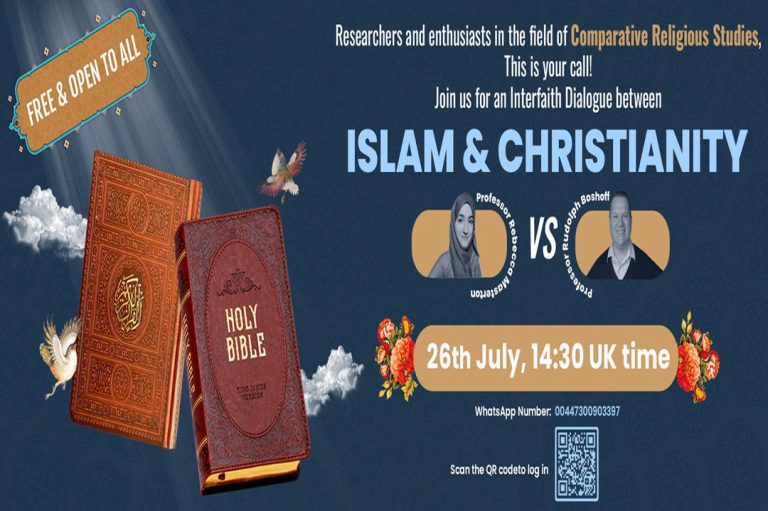New Course at DarulQuran Academy: Quranic Sciences
Quranic sciences, according to some researchers, refers to terminology related to the understanding of the Quran and its various aspects. From another perspective, it refers to a collection of knowledge related to the Quran that is used to understand its nature, historical developments, foundations of comprehension, interpretation, and the studies and activities conducted regarding the Quran.
Some Quranic scholars believe that Quranic sciences encompass a set of foundational knowledge necessary for understanding the content of the Quran.
They hold the belief that discussions about the Quran and understanding its issues have been present since the early days of Islam, and many scholars and intellectuals have engaged in conversations regarding this.
The Quranic exegesis of Imam Ali (as) is considered the first written work known to include some of the topics of Quranic sciences. According to researchers, this work was written either during the time of the Prophet (s) or immediately after his passing, by Imam Ali (as).
It not only collected the Quran while preserving its chronological order but also delved into topics such as abrogation (nasikh and mansukh), firm and ambiguous verses (muhkam and mutashabih), and the reasons for revelation (asbab al-nuzul).
Differentiating Quranic sciences from Quranic exegesis leads to a deeper understanding of this field. The main distinction is that Quranic sciences are external to the Quran and do not involve an interpretative aspect concerning the Quran’s content. In contrast, Quranic exegesis solely deals with the internal matters of the Quran and its content, serving as a thematic interpretation.
Quranic sciences encompass topics such as revelation and its descent, the arrangement of chapters and verses, the reasons for revelation, the scribes of revelation, the standardization of the Quranic text, the compilation of the Quran, calligraphy, the origins of the seven different readings, the absence of tampering or distortion, miraculous aspects (I’jaz), abrogation, firm and ambiguous verses, and refuting doubts and objections regarding the Quran.
Below, we can briefly explain a few topics within Quranic sciences:
- Revelation and the Descent of the Quran: Revelation is the means through which the prophets communicate with the unseen world to receive divine messages. The term “revelation” or vahy is used in the Quran in various contexts, such as hidden indications (as in the story of Prophet Zakariah), instinctive guidance of animals like bees, inspiration to inanimate objects, inspiration to non-prophets like the mother of Moses, and revelation to divine messengers. According to scholars, revelation to prophets can occur in three ways: 1. Direct communication from Allah to the prophet, 2. Mediated by non-human intermediaries, like the Angel Gabriel, and 3. Revelation from beyond the veil.
- Reasons for Revelation: The descent of Quranic verses occurred in a miraculous manner from the Wise and Mighty Allah. It took place over a period of 23 years in various social and cultural contexts. Knowledge of the reasons for revelation can impact the understanding of Quranic verses. Therefore, the science of ” reasons for revelation ” deals with specific individuals, events, and circumstances in which particular verses were revealed. Muslim scholars have written independent books on the reasons for revelation. Not all Quranic verses have reasons for revelation, and some Quranic scholars have identified approximately 460 cases.
- Inimitability of the Quran (I’jaz): The inimitability of the Quran refers to the supernatural qualities of the Quran in terms of its structure, wording, and content. It signifies that no one but God can produce something similar. The Quran challenges its critics to produce a text like it, even a single chapter or verse.
- Firm and Ambiguous Verses: “He it is Who has sent down to you the Book; in it are verses that are firm and decisive in meaning—they are the foundation of the Book—and others ambiguous”. The Quran categorizes its verses into “firm” (muhkam) and “ambiguous” (mutashabih). Firm verses have clear and unambiguous meanings, while ambiguous verses may have various possible interpretations, and their true meaning is not immediately evident.
Understanding the primary tools of Quranic comprehension, or Quranic sciences, is highly significant. Reasons for the importance of this knowledge include proving the divine revelation of the Quran, validating the authenticity of the Quranic text throughout history, fundamental roles in the interpretation and understanding of the Quran, and the ability to defend the Quran against doubts and objections.
Considering the importance of this subject, DarulQuran Academy has recently introduced a new course for those interested in this field. This course, consisting of 10 sessions, is designed for individuals over the age of 15, including teenagers and adults. In each session, participants, along with experienced instructors, explore one of the key tools for understanding the Quran.
To enhance the participants’ skills for benefiting from Quranic concepts, the course includes various other elements, such as addressing important and fundamental questions, presenting diverse examples related to the topics, and group discussions.
The DarulQuran Academy aims to equip individuals with the ability to better comprehend the intended meanings of Quranic verses through a reflective and meticulous approach, and to provide a suitable foundation for living in accordance with the teachings of the Quran.
For more information about this course, you can click here .
We hope that this course will guide us all to a complete and comprehensive understanding of the divine message of the Quran.








